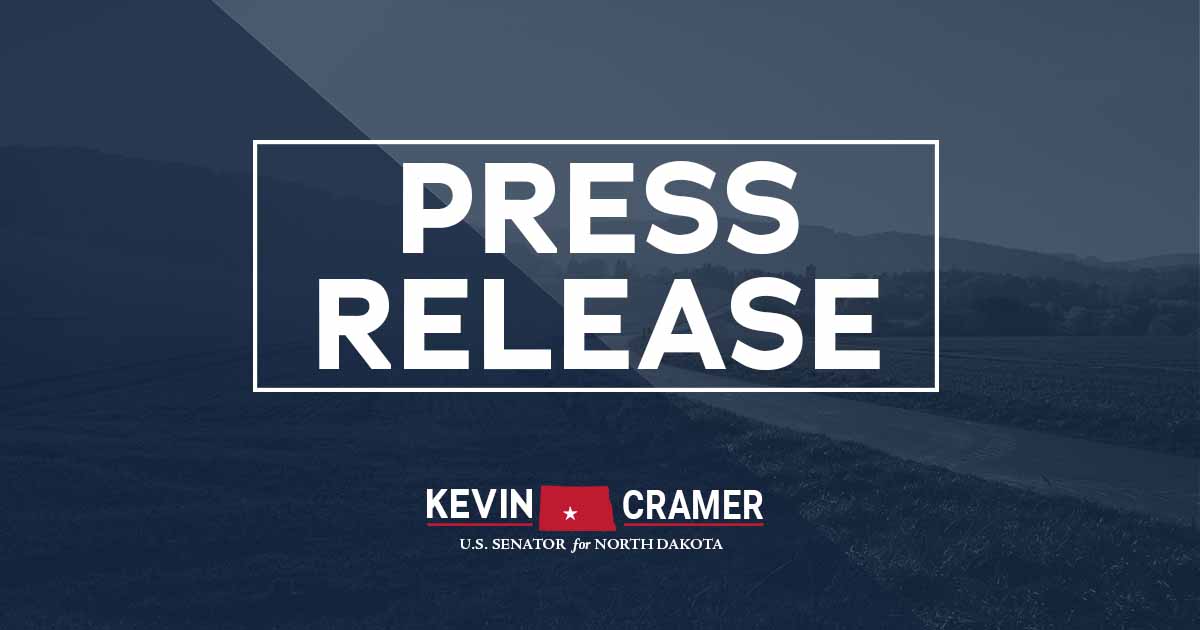Source: United States Senator Kevin Cramer (R-ND)
WASHINGTON – Senator Kevin Cramer (R-ND) and all Republican Senators led by Mike Braun (R-IN) and Republican Leader Mitch McConnell (R-KY) filed a formal challenge against President Biden’s vaccine mandate on private businesses under the Congressional Review Act, the official process for Congress to eliminate an executive branch rule. This move to overturn President Biden’s vaccine mandate for private employers is guaranteed a vote on the Senate floor. The rule was transmitted to the Senate on November 16, which allows a Floor vote as early as December.
“The Biden Administration does not have the constitutional authority to impose vaccine mandates on private businesses. We know this, and the courts have ruled Joe Biden is stretching the limit of his legal authority. No American should be forced to choose between their job and their personal decision to receive a COVID-19 vaccine, especially at a time when businesses are struggling to find workers and inflation is soaring. Our resolution protects personal liberty, our economy, and the Constitution,” said Senator Cramer.
“Senate Republicans will formally challenge the overreach of federal power that is President Biden’s vaccine-or-test mandate for private businesses, and I urge the Senate to vote in favor of this disapproval resolution when it comes to the Floor for a filibuster-proof, simple-majority vote as soon as early December. Republicans are united against President Biden’s vaccine-or-test mandate for businesses, but this federal overreach is not a partisan issue, and the consequences of this mandate are affecting Americans in all 50 states,” said Senator Braun.
This Biden Administration rule strips personal freedoms from Americans and subjects private businesses to additional duress in the midst of the current labor shortages and supply chains disruptions. In short, this unacceptable federal directive impacts tens of millions of Americans and warrants review by Congress – the representatives elected by the American people to make the laws.
The resolution has been received by the Senate and referred to the Committee on Health, Education, Labor, and Pensions (HELP). Companion legislation was introduced by Congressman Fred Keller (R-PA-12) and other members in the U.S. House of Representatives.
Background
- On September 8, President Joe Biden announced vaccine mandates which extend to 80 million private sector workers and additional mandates on millions of federal workers and contractors.
- To implement this mandate, OSHA issued an Emergency Temporary Standard (ETS). Employers who fail to comply will be fined $13, 653 for each offense and willful violations will result in a $136,532 penalty. This rule places unrealistic compliance burdens on employers—especially during a time where business and supply chains are already suffering serious constraints. For example, 30 days after publication, all requirements other than testing for employees must be in place. In addition, 60 days after publication, all testing requirements must be in place.
- The CRA can be used by Congress to overturn certain federal agency regulations and actions through a joint resolution of disapproval. If a CRA joint resolution of disapproval is approved by both houses of Congress and signed by the President, or if Congress successfully overrides a presidential veto, the rule at issue is invalidated.
